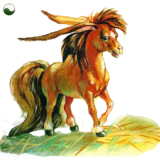To (artificial) meat or not to meat .... · 2:33am Dec 9th, 2020
-----
The “chicken bites”, produced by the US company Eat Just, have passed a safety review by the Singapore Food Agency and the approval could open the door to a future when all meat is produced without the killing of livestock, the company said.
[...]
A series of scientific studies have shown that people in rich nations eat more meat than is healthy for them or the planet. Research shows cutting meat consumption is vital in tackling the climate crisis and some scientists say this is the best single environmental action a person can take.
[...]
The small scale of current cultured meat production requires a relatively high use of energy and therefore carbon emissions. But once scaled up its manufacturers say it will produce much lower emissions and use far less water and land than conventional meat.
----
possible counterarticle:
https://theconversation.com/cultured-meat-could-create-more-problems-than-it-solves-127702
-----
As indicated by a 2011 study, cultured meat can offer many advantages over conventional meat: It would reduce greenhouse gas emissions by 78-96% and require 7-45% less energy and 82-96% less water. However, more recent research suggests that over the long term, the environmental impact of lab-grown meat could be higher than that of livestock. Unlike the previous research, these studies considered not only the nature of the gases emitted, but also the energy costs of the infrastructures required for cell culture.Animals have an immune system that naturally protects them against bacterial and other infections. This is not the case for cell culture, and in a nutrient-rich environment, bacteria multiply much faster than animal cells. To avoid producing a steak made up of more bacteria than meat, it is essential to avoid contamination, and that requires a high level of sterility.
Both still point at
It’s also important to remember to that high consumption of meat is detrimental not only to the environment but also to human health. However, many consumers are not aware or decline to accept such conclusions.





Cervical insemination, a fertility procedure, involves the direct placement of sperm into the cervix to enhance the chances of conception. It's a minimally invasive process, often performed in clinical settings under the guidance of healthcare professionals. By bypassing potential barriers to conception cervical insemination offers a promising option for individuals and couples seeking to overcome infertility challenges and realize their dreams of parenthood.